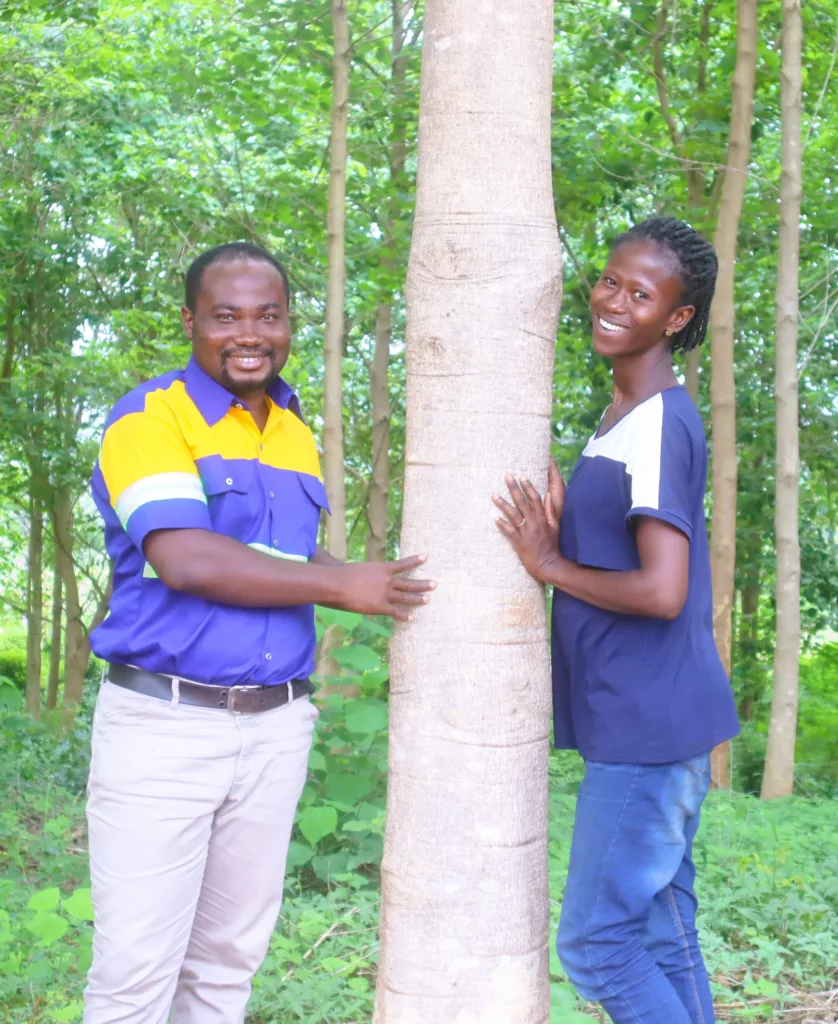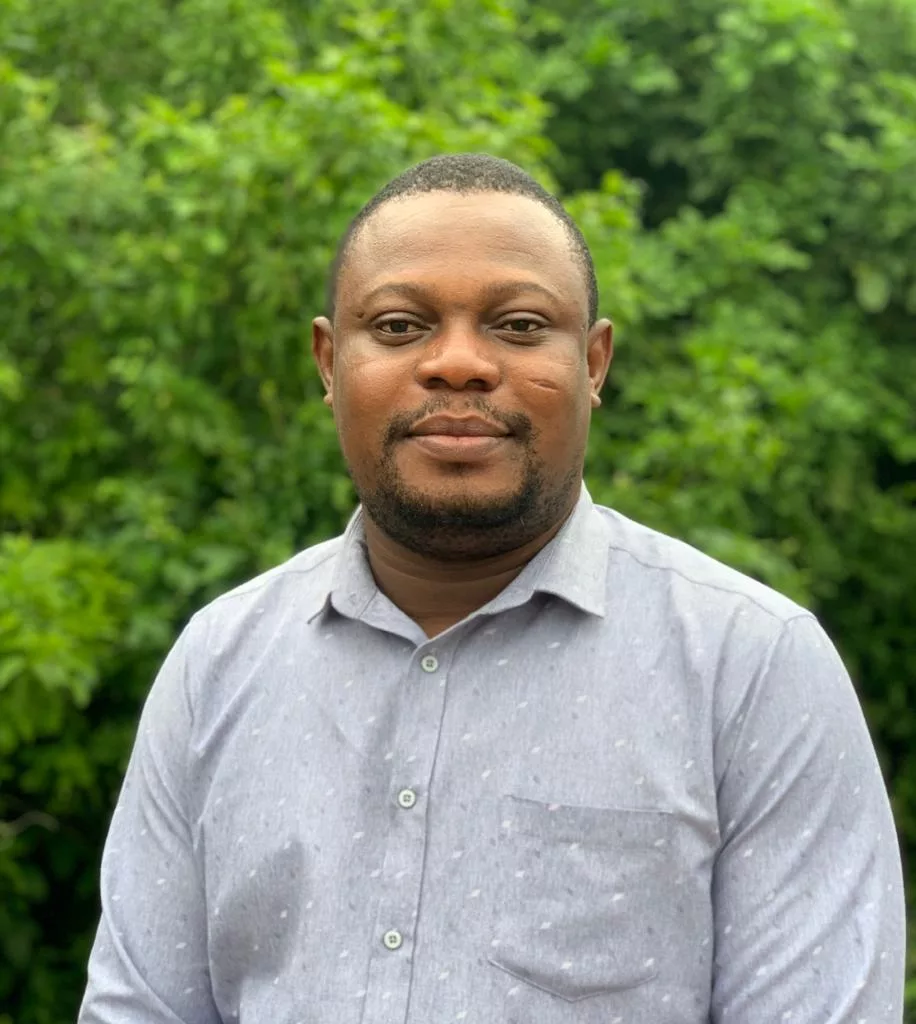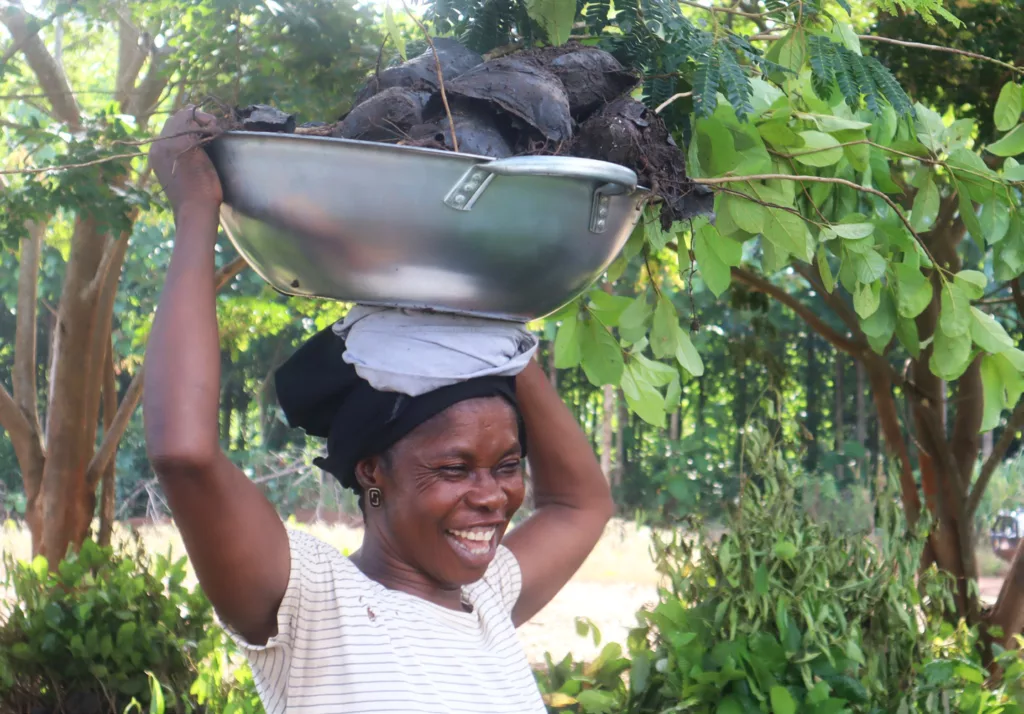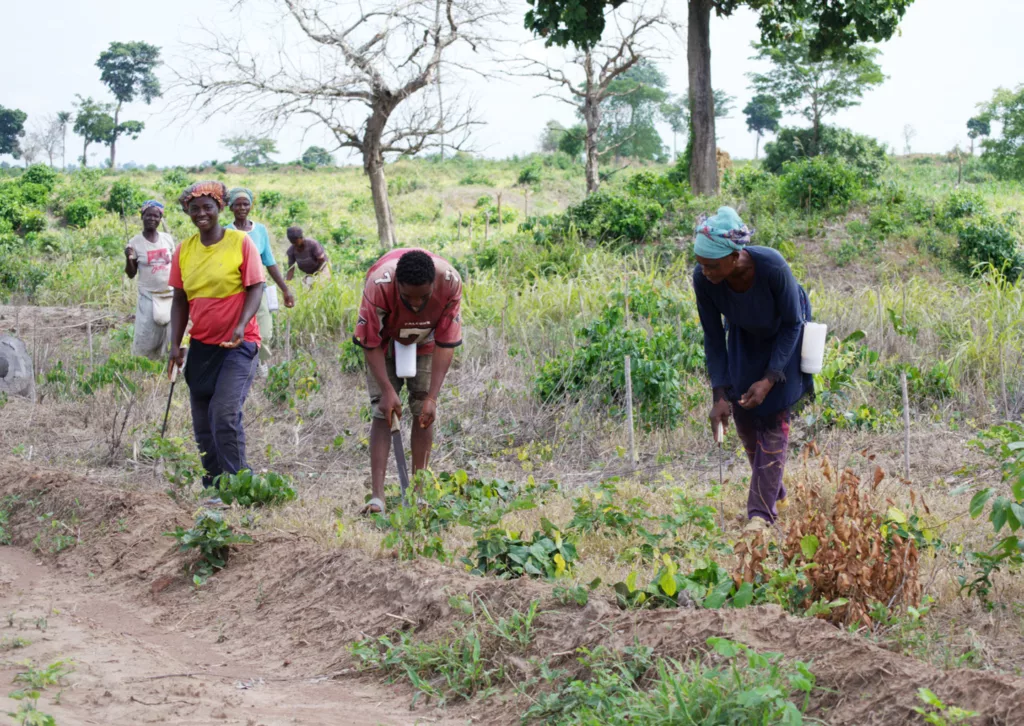Every year, Form Ghana recruits and selects one or more groups of young graduates to participate in its Management Training Programme.
The trainees are monitored and mentored throughout the period and exit the programme with experience working in and managing teams. They also understand the contribution of sustainable forest management in mitigating climate change.
TRAINEE FEEDBACK
By: Agyewaa Faustina, Gideon Appiah, Adam Osman, and Thomas Baidoo
"We eagerly joined Form Ghana in 2023 as Management Trainees. Embracing this great opportunity, we were introduced to a structured trainee programme that provided us with valuable experience in communication and problem-solving skills.
"In addition to practical knowledge gained in various silviculture and harvesting operations, we assisted senior managers in carrying out plantation management activities.


"Our journey as Management Trainees at Form Ghana has been extraordinary. We have grown personally and professionally, acquiring vital skills, embracing challenges, and contributing to the company’s success.
We are confident that the practical knowledge and experience gained during our trainee programme will contribute significantly to our effectiveness as employees in Form Ghana. Thank you, and long live Form Ghana!"
Samuel (Sammy) Ampofo Owusu has recently been appointed Executive Assistant to Form Ghana's CEO. As an integral part of the leadership team, the Executive Assistant plays a vital role in supporting the CEO and ensuring the smooth functioning of the organisation.
Sammy has a BSc in Accounting and an MBA in Finance. He joined Form Ghana in November 2012 after completing his national service. "I chose Form Ghana because I wanted to contribute to an exciting, forward-thinking and fast-moving company in an important industry", he says.
"I am a meticulous accountant versed in audit coordination and execution. Over the years, Form Ghana has allowed me to adapt to various job roles", Sammy explains. He says the experiences have developed his abilities to multitask, think critically, meet strict timelines and provide accurate reporting.
"As the Executive Assistant, I will focus on corporate governance, ensuring strict compliance with applicable laws and meeting all investor requirements. My previous experience in the company has deepened my understanding of working with external stakeholders.
"It has also deepened my communication skills with the various departments within the company and enhanced my time management skills, which will greatly impact my success in this new role".
Sammy believes Form Ghana's focus on good corporate governance will allow it to take advantage of new opportunities that arise.
"Form Ghana's operations are increasingly moving into the digital space where banking, harvesting and operations are managed electronically or by machines. This means we must ensure our staff are upskilled and digitally dexterous".
He advises aspiring professionals seeking senior management positions to be focused, dedicated, committed, involved, consistent and hardworking.
In 2007 Ghana's Forestry Commission and Form Ghana drew up and signed the country's first forestry public-private partnership (PPP), laying the foundation for other PPPs to enter the sector. Form Ghana's mission is to work closely with traditional leaders, district assemblies and fringe community chiefs, queen mothers and elders to sustainably rehabilitate, reforest and manage its leased forest reserves.
Paul Ontoaneyin manages Form Ghana's Environment and Social (E&S) Department, assisted by E&S Officers Bismark Manu Adjei and Evelyn Affreh. Ontoaneyin describes the relationship between the company and the villagers living on the boundaries as "mutually beneficial".
Open and sincere
Ontoaneyin says, "Our activities impact the fringe communities, and we don’t make decisions without consulting them first. Over the years we have established an open and sincere relationship".
It is illegal for farming and logging to happen on Ghana's forest reserves. "However, Form Ghana's negotiations with the Forestry Commission lets the company sign agroforestry agreements with farmers from its fringe communities," explains Ontoaneyin.
"We regularly meet with community leaders and farmers to discuss their needs and identify and solve problems that fall within the scope of Form Ghana's agreement with the Forestry Commission.
"By involving the Forestry Commission and traditional and community leaders in decision-making, we promote inclusive and participatory approaches to sustainable development.
"If a problem raised by a community is beyond the company's control, we liaise with the Forestry Commission, relevant government departments and organisations and facilitate a solution. I believe maintaining open communication promotes transparency, trust, and a sense of ownership and shared responsibility".
Form Ghana's head office is in Sunyani, 370km northwest of Accra. It leases 19,467ha of degraded land in Berekum and Akumadan. Berekum is in the Bono Region, 37km from Sunyani, and Akumadan is 74km by road in the Ashanti region. It has established a 9007ha teak plantation at Berekum and 3447ha at Akumadan. The company has restored over 2000ha of the indigenous forest through enrichment planting and reforestation.
Teak and Gmelina
The company specialises in teak (Tectona grandis) from provenances sourced in Brazil, Ivory Coast, Costa Rica and elsewhere. However, it recently planted an experimental plot of Gmelina (Gmelina arborea). Both are deciduous hardwoods belonging to the Verbenaceae family.


Matthew Essuman, the commercial manager, says Form Ghana's growth and yield modelling indicate that Gmelina grows faster than teak under ideal conditions, which means it can be harvested and re-planted sooner. "We are working with our silviculture researchers and stakeholders to determine the best provenances and sites that will deliver products meeting their specifications", he says.
Seedlings
Form Ghana's nursery is located at Akumadan. It can produce 3,5m teak and 400,000 indigenous seedlings and cuttings of more than 11 species annually.
Afia Yeboah is the plantation manager at Berekum. She, Ontoaneyin, Mariam Awuni, the human resources manager and Essuman are part of the team coordinating Berekum's silviculture and harvesting regimes.
Yeboah says before planting, women from the fringe communities collect fuel wood. After that, the site is burned on a day when the fire-danger index is low and monitored to determine when the soil is ready for cultivation.
The boundary of the planting blocks is measured and demarcated with baseline timber pegs. The blocks are adjacent to or near forestry roads to ensure access for the farmers and Form Ghana's monitoring and firefighting teams. The blocks are further demarcated with bamboo pegs at 3x3m intervals.
Taungya system
"We use a modified form of Ghana's Taungya System that involves agroforestry and inter-cropping practices", Yeboah says.
Expanding on the subject, Ontoaneyin explains that "We inform the 150 farmers who have signed an agreement with us when planting conditions are ideal. They and their employees use the roads we have made in and from their communities to cultivate and tend cereals, grains and other short-term food and cash crops".
In addition to introducing maise, cashew, cocoa and teak inter-cropping, demonstration farms (research plots) have been planted with cassava, plantain and okra, with technical support from Ghana's Food and Agriculture Ministry.
By the time the crops are ready for harvesting, the plantation trees have grown. They are hardy enough to withstand weather conditions and competition from weeds.


Indigenous seedlings
When the truck of indigenous seedlings arrives at Berekum, they are unloaded, watered and then hardened off to lessen the shock of planting. The plastic bags are carefully removed during planting, and the seedlings are placed in prepared holes in demarcated blocks. Inter-cropping also takes place in indigenous areas.
Teak stumps
Although the Berekum plantation has no formal nursery and receives seedlings from Akumadan, it also uses a moving or dry silviculture system. Teak seeds are planted, and after eight months, a harvesting team slashes the stems and uses pickaxes to uproot the plants.
The exposed roots are gathered and taken to a group of dexterous women who use knives to carefully remove the sprouting roots. They measure the stumps four roots down from the collar and cut them, leaving the bottom part of the root or stump.
The planting teams dig a hole next to each peg, and the teak stumps are planted to expose about 2mm of the tip. They use their feet to compact the soil to ensure that rodents don’t dig up the stumps.
Fire prevention
Through comprehensive training programmes, farmers and community firefighting teams are given the necessary skills, a mobile phone, and personal protection and firefighting equipment to manage controlled burns and for firefighting.
Do you want to join our team?